By 2021, Artificial Intelligence (AI) will allow the rate of innovation and employee productivity improvements in Singapore to nearly double according to business leaders in Singapore.
The study from Microsoft and IDC Asia/Pacific, Future Ready Business: Assessing Asia Pacific’s Growth Potential Through AI surveyed over 104 business leaders and over 102 workers in Singapore.
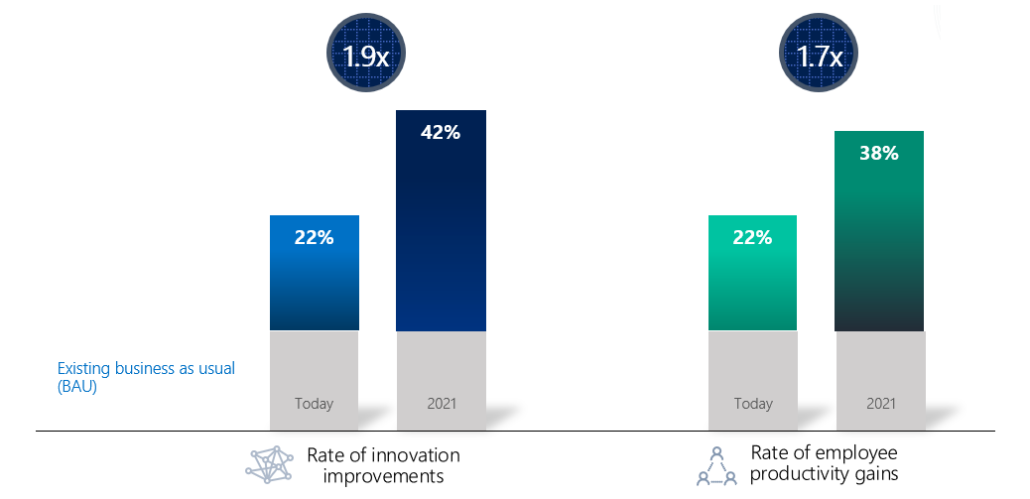
While more than 80% of business leaders polled agreed that AI is instrumental for their organisation’s competitiveness, only 59% of organisations in Singapore have embarked on their AI journeys. Those organisations that have adopted AI expect it to increase their competitiveness 1.7 times by 2021.
“Today, every company is a software company, and increasingly, every interaction is digital. To be successful in this new world, organisations need to be a fast adopter of best-in-class technology; and secondly, they need to build their own unique digital capabilities,”
said Kevin Wo, Managing Director, Microsoft Singapore.
“AI is the defining technology of our time that significantly accelerates business transformation, enables innovation, boosts employee productivity, and ensures further growth. Economies and businesses that have yet to embark on their AI journey run a real risk of missing out on the competitive benefits that are enjoyed by leaders.”
Why adopt AI?
For the organisations that have implemented AI initiatives, the top five business drivers to adopt the technology were (in priority order): Better customer engagement (32% of respondents named it as the number one driver); higher competitiveness (19%); accelerated innovation (16%); higher margins (15%); and more productive employees (6%).
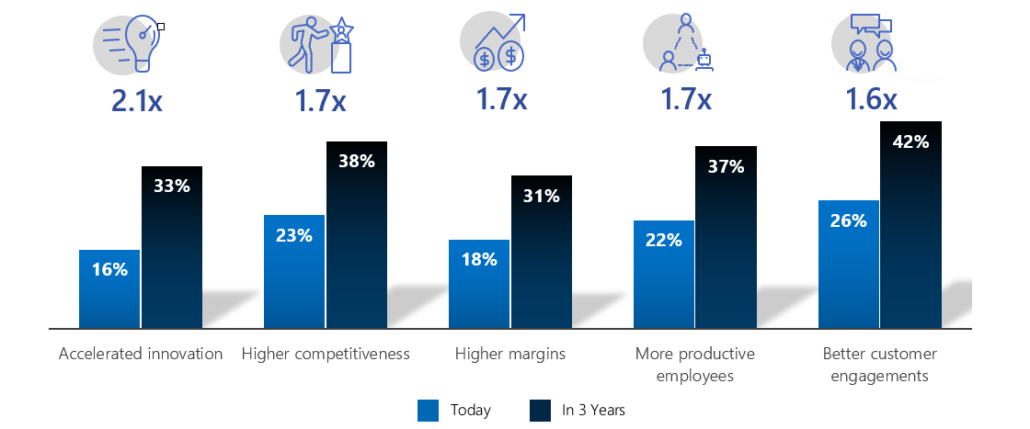
Singapore needs to build on the infrastructure
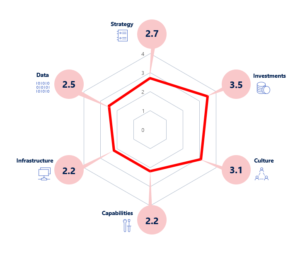
The study evaluated six dimensions critical to ensuring the success of a nation’s AI journey. It uncovered that Singapore needs to build upon its infrastructure in order to accelerate its AI journey.
Business leaders who are adopting AI face three top challenges: a lack of thought leadership and leadership commitment to invest in AI; a lack of tools and infrastructure to develop actionable insights; and a lack of skills, resources and continuous learning programs.
The study showed that to move ahead on their AI journeys businesses have to create the right organisational culture. More than half of the business leaders and workers surveyed believe that cultural traits that support AI journeys, such as risk-taking, proactive innovation, as well as cross-function partnerships among teams, are not pervasive today.
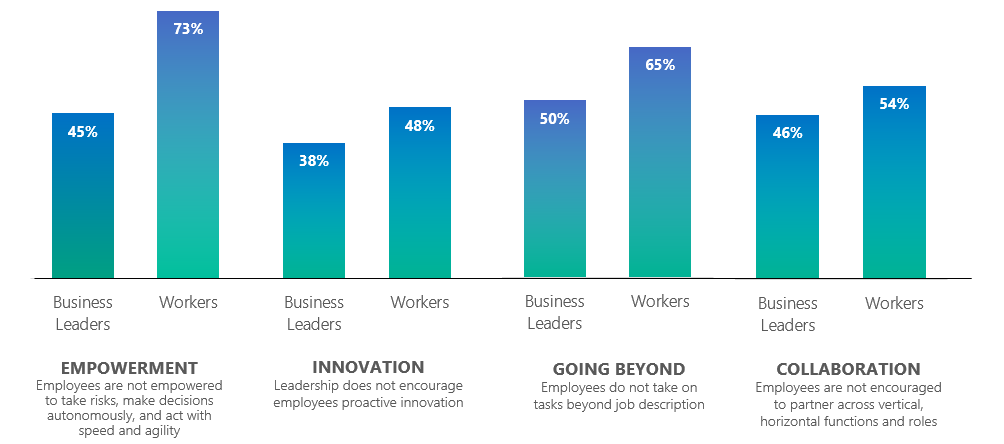
Organisations need to address skills challenge for an AI-enabled workforce
The study found that Singapore’s business leaders and workers hold positive viewpoints about the AI’s impact on the future of jobs. The majority (62% of business leaders and 71% of workers) believe that AI will either help to do their existing jobs better or reduce repetitive tasks.
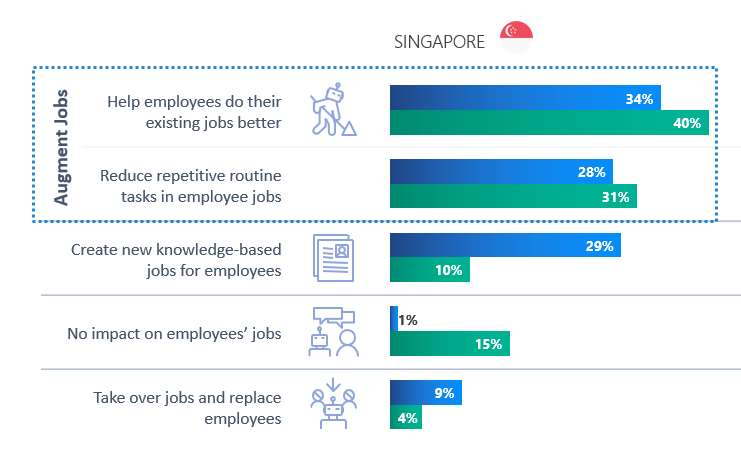
The top three future skills required by business leaders in Singapore include creativity, digital skills and critical thinking. The demand for all three is higher than the existing supply.
The study also uncovered that business leaders value soft skills more than workers expect. The biggest skills gaps identified were in:
-
- Adaptability and continuous learning (26-pt difference)
- Creativity (14-pt difference)
- Digital skills (14-pt difference)
AI Leaders: Robust strategy, capabilities and skills provide an edge
The study identified 6% of organisations which are AI Leaders. These organisations have already incorporated AI into their core business strategy and nearly doubled their business benefits today as compared to others.
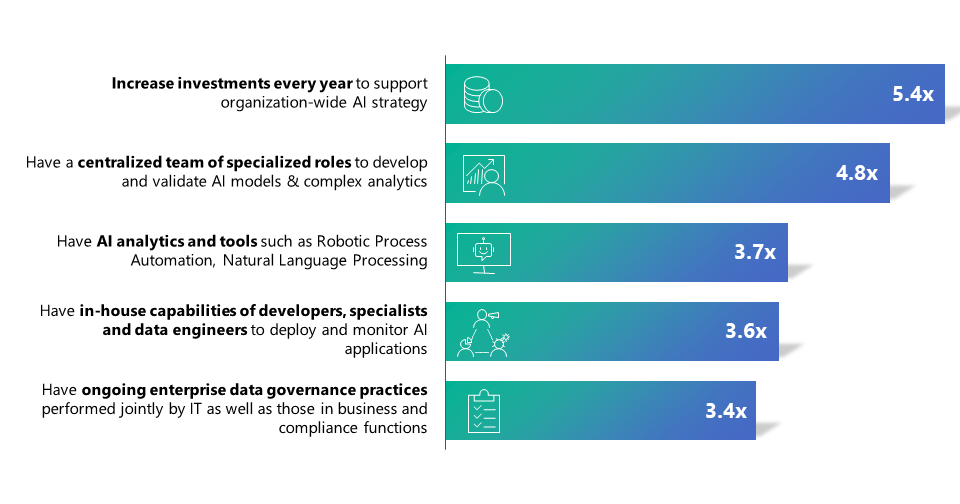
Featured image credit: Unsplash





